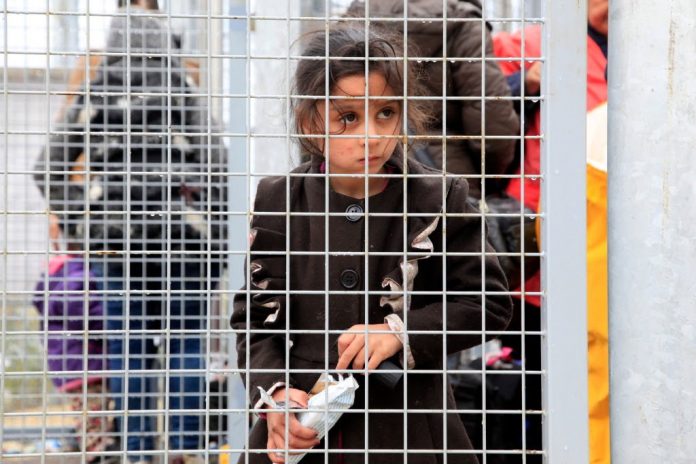Hungarian authorities have not done enough to protect migrant children from sexual abuse along Serbian-Hungarian border according to a report adopted on June 6 by the Committee of the Parties to the Council of Europe Convention on the Protection of Children against Sexual Exploitation and Sexual Abuse (“Lanzarote Committee”).
The report “deplores” the lack of effective measures taken to protect migrant and asylum-seeking children from sexual exploitation and sexual abuse in transit zones at the Serbian/Hungarian border.
The Lanzarote Committee has determined that children in these zones continue to face unnecessary risks, because Hungarian authorities have not done enough to protect them, despite a few positive developments (such as training put in place and the setting up of shaded areas).
According to the report unaccompanied children aged 14-18 are still treated as adults under immigration procedures. Children remain detained in fenced, open-air areas with containers for shelter. Unaccompanied children aged 14-18 – especially girls – are still not cared for within the Hungarian regular child protection system, which increases the risk of sexual exploitation and abuse, the report underlines.
Hungarian authorities’ lack of interest to prevent possible sexual exploitation and sexual abuse of asylum-seeking children is also proved by the fact that they do not co-operate with Serbian authorities and block entering Hungarian transit zones.
In addition the Hungarian authorities are expected to close the Károlyi István Children’s Home at Fót. There is no precise information on alternative accommodation for unaccompanied children.
As reported by Mérce website two independent MP, Bernadett Szél and Szabolcs Szabó, independent parliamentarians, said that they witnessed tens of minors held in barbed wire in the “family section” of transit.
As declared by the Hungarian Helsinki Committee, “it is time for the Hungarian authorities to take children’s rights seriously. Children who have suffered so much, especially vulnerable children, need protection and security instead of more pain”.

